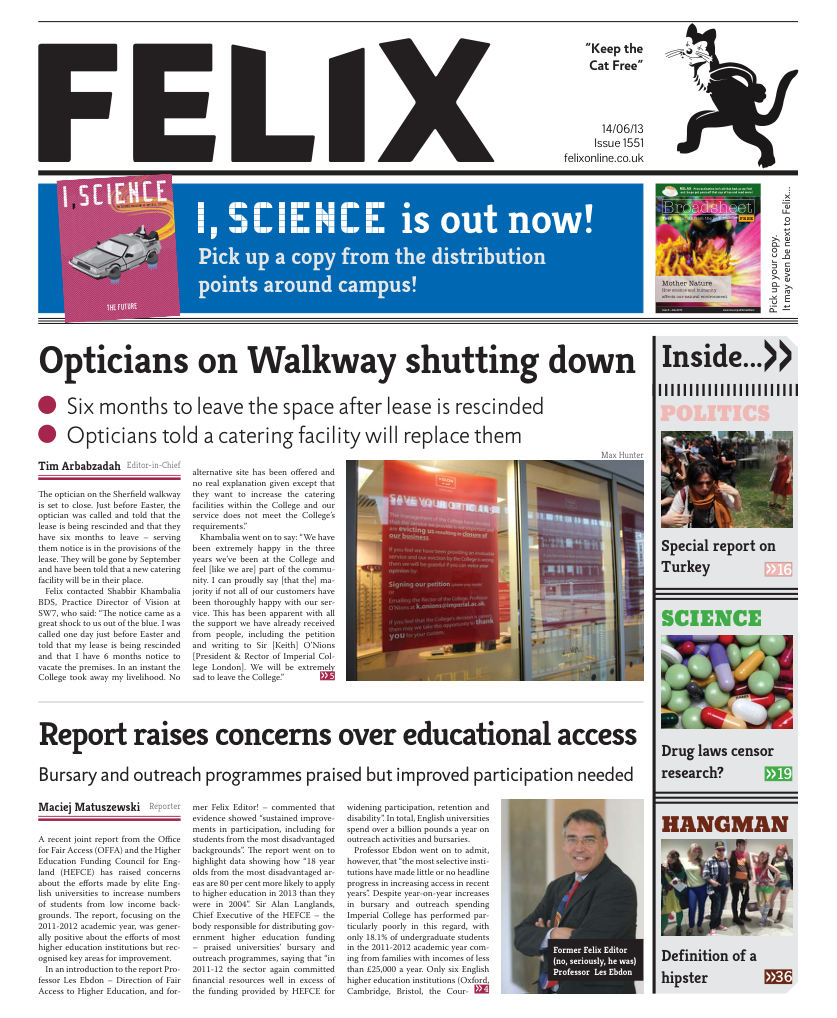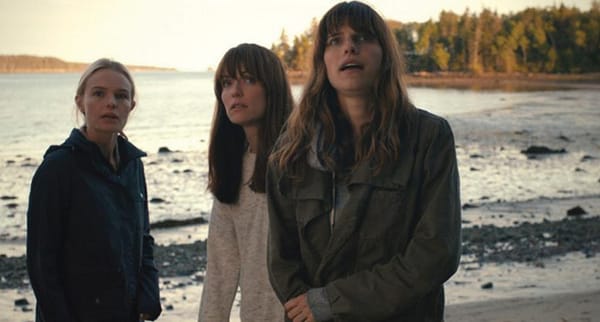Too gay for Hollywood
Behind the Candelabra review
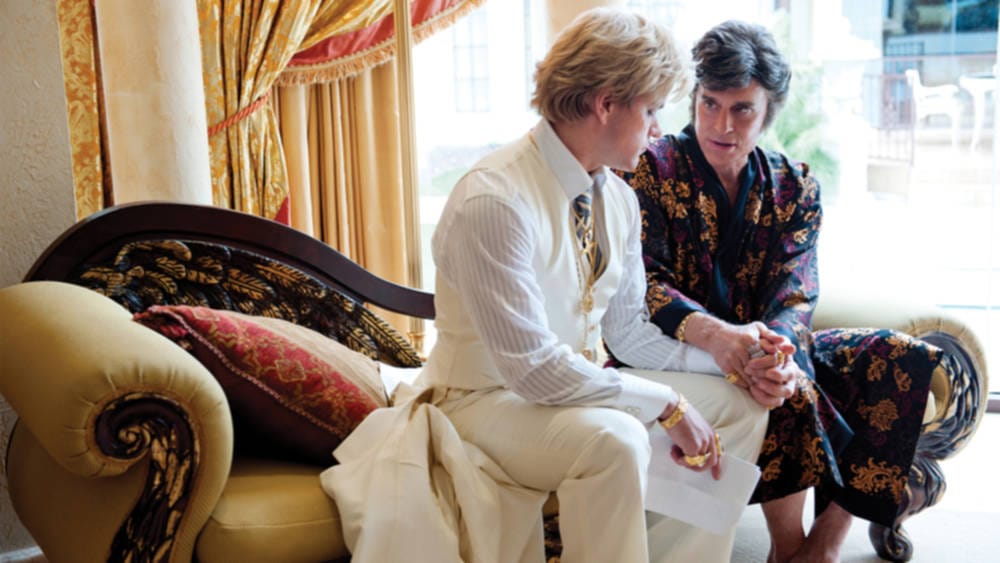
Director Steven Soderbergh recently spoke about how difficult it was to make his latest film, as it was deemed “too gay” by most big film studios. But thank heavens for Home Box Office (HBO) for giving Soderbergh his chance to tell the story of Liberace, one of the most celebrated, and highly paid musical figures in the 20th Century, known for his outrageously extravagant visuals on stage, his colourful lifestyle, as well as his ability to put on a cracking show and entertain.
But Behind the Candelabra, as its name suggests, is about the wildly eccentric personal life of Liberace (Michael Douglas), his complicated relationship with the much younger Scott Thorson (Matt Damon), his driver, friend and lover. They first cross paths when Scott is invited to meet Liberace backstage at one of his sell-out concerts. Liberace takes an immediate liking to Scott and it’s not long before they start a relationship, although given the cranky, unhappy state of Billy Leatherwood (Cheyenne Jackson), a former flame, it doesn’t bode well for Scott’s future.
Having grown up in a modest foster home, the lavish gifts his boyfriend showers on him is certainly a drastic change, one Scott doesn’t quite mind getting used to. There’s jewellery, there’s never-ending flow of champagne, the immaculately decorated, golden-plated mansion is quite simply out of this world, and in keeping with Liberace’s famous saying “too much of a good thing is wonderful,” everything seems to appear in excess. The production design and the art department have created something extraordinary here, going completely overboard, as well they should, to show that both on and off stage, there is very little difference in Liberace’s taste for extravagance.
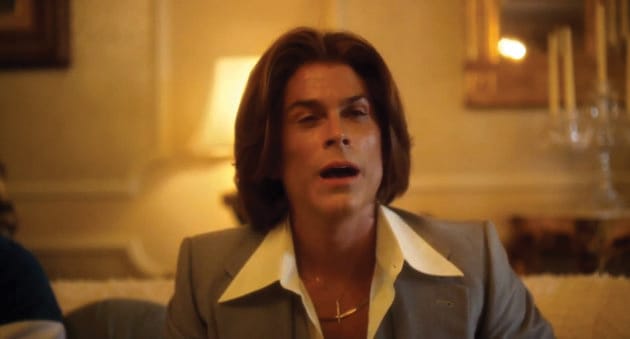
Their relationship is riddled with disturbing content as it progresses –as we soon discover Liberace’s rather unhealthy obsession to turn his lover into an adopted son of some sorts, pushing Scott into plastic surgery so that they may share more physical resemblance. And so we’re introduced to Dr John Startz (Rob Lowe), a hideously disfigured individual who has clearly had a taste of his own medicine a few too many times, with his uncomfortable looking squint, a by-product of many, many face-lifts, guaranteed to shock and make you think twice about plastic surgery in general.
In the lead role designed to be the centre of attention at all times, Douglas is on excellent form, fully embracing the campy, extremely vibrant energy of the star, and with some incredible CGI work it looks as though it’s actually Douglas who’s playing away at the piano when in fact it’s not. Always dressed in the most sparkling, brightest costumes, there are lots of laughs to be had in seeing a hilariously complex man, and yet there are tender moments of real warmth in scenes that show off Douglas’ range and versatility.
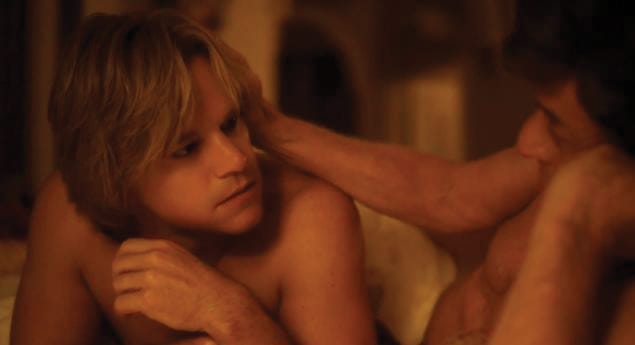
Nevertheless there isn’t a lot to immediately like about Liberace in this film; never looking closely at the stage persona that impressed millions worldwide, just by looking at the film alone it’s confusing as to why this man is such a beloved musical icon. A more balanced look would no doubt have further enriched his character, rather than very often coming across as nothing but a creepy, lonely old man with some serious psychological issues.
History does have its way of repeating itself it seems, as soon, passion sizzles and the two of them start looking elsewhere to fill the void. For Liberace he takes a keen interest in a musical actor who shows promise (Boyd Holbrook), amongst other fresh-faced young men, and with Scott he turns to drugs. Although left with a less showy, stuck-in-the-shadows type role, Damon still turns his role into something more than a mere silent victim, the wronged party. There is nothing new about someone involved in that particular industry face a downward spiral due to drug addiction, but there is so much more to be said in the slow but gradual disintegration of their complicated relationship, one that is convincingly captured not only by the fur-wearing pianist, but also his long-suffering partner.
It’s a shame this missed out on its opportunity to screen at the cinemas in the States. Even with real potential to score some Oscar nominations and possibly a win for Douglas, the film is no longer eligible as it was shown as a television movie. So Douglas will have to settle for a possible trifecta of an Emmy, a Golden Globe and a Screen Actors Guild Award, but given the theatrical push it’s been getting around Europe, it has a chance to reach a wider public audience this deserves.

